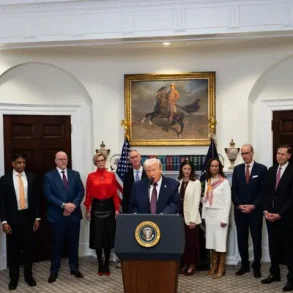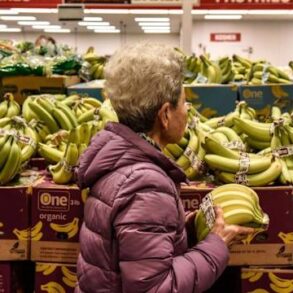In 2025, recent college graduates are facing a grim reality as they step into a job market that feels more like a “black hole” than a land of opportunity. Despite earning degrees in fields like computer science, engineering, or global studies—once considered golden tickets to high-paying careers—many are finding their skills, internships, and connections are no match for a sluggish economy. With hiring slowing to its lowest pace since the pandemic and emerging technologies like artificial intelligence (AI) reshaping entry-level roles, new graduates are grappling with rejection, low-paying jobs, and growing uncertainty about their future.
A Dismal Job Search
For many, the job search has been a disheartening marathon. Jensen Kornfeind, a 2025 Temple University graduate with a degree in international trade, applied to over 70 jobs, secured only three interviews, and was ghosted by two employers. Adam Mitchell, a 23-year-old computer science graduate from Georgia State University, expected his three years of internship experience at State Farm to land him a tech job. Instead, after applying to over 100 positions, he faced rejections from even hourly roles at Costco and a call center job at State Farm. “There’s nothing available,” Mitchell said, now living with his parents in Atlanta and dipping into his savings while worrying about student loan repayments.
Similarly, Anthony Young, a 26-year-old from Emporia, Kansas, graduated with an associate’s degree in power plant management, hoping to work at a local nuclear power plant. After a year of searching, he called his degree “useless” and returned to school for a technical certificate in electrical work, only to learn it requires a five-year apprenticeship that could mean long commutes and time away from his family. Azraiel Raines, a global studies graduate from Idaho State University, dreamed of a State Department career but found no openings due to government downsizing. She settled for a counseling role at her alma mater, a job she hadn’t envisioned but one that uses her skills in unexpected ways.
Economic Realities and Rising Unemployment
The struggles of these graduates reflect broader economic trends. According to the Federal Reserve Bank of New York, the unemployment rate for recent graduates climbed to 5.3% in 2025, compared to 4.1% for the overall labor force—the toughest job market for new grads since 2015. In July 2025, U.S. employers added just 73,000 jobs, the slowest hiring pace since the pandemic, while the number of long-term unemployed (out of work for over 27 weeks) rose by 179,000 to 1.8 million, per recent data.
Economists point to multiple factors. Employers are hesitant to hire amid economic uncertainty driven by President Donald Trump’s shifting tariff policies and federal spending cuts. Jaison Abel, an economist at the Federal Reserve Bank of New York, noted that recent graduates are “on the margin of the labor market,” feeling the slowdown first. Additionally, AI is beginning to replace entry-level roles in fields like customer support and basic software development, particularly in tech, where companies like Meta, Intel, and Cisco cut over 130,000 jobs in 2025, according to tech job site TrueUp.
Settling for Less
Many graduates who do find work are accepting lower salaries or jobs outside their fields. A ZipRecruiter survey highlighted a significant gap between the salaries college seniors expected and what they actually earned. “The competition is fierce,” said Sam DeMase, a career expert at ZipRecruiter. “It’s an employers’ market.” Nicole Hall, Dean of Students at the University of Virginia, encourages flexibility, noting that a first job, even if not ideal, can be a stepping stone. Research from the New York Fed shows that while many graduates start in less challenging roles, most find better positions within a few years.
For Young in Kansas, financial pressures compound the struggle. Despite his wife’s $90,000 salary, rising costs—apartments jumping from $600 to $1,000 a month, groceries from $80 to $180 a week, and $20,000 in student loans—mean they live paycheck to paycheck. “We shouldn’t be,” he said.
A Glimmer of Hope
Despite the challenges, some graduates remain optimistic. Raines, now working at Idaho State University, plans to pursue a master’s degree while keeping her State Department dream alive. “We’re taking a little detour right now,” she said. Economists like Richard Deitz from the New York Fed emphasize that a college degree remains a long-term investment, with benefits unfolding over a career. While the unemployment rate for recent graduates is higher than in recent years, it’s still lower than the nearly 7% rate for young people without degrees.
Navigating the Future
For now, recent graduates must be patient and adaptable. The job market’s storm clouds—economic uncertainty, AI’s rise, and cautious hiring—require resilience and creativity. As Mark Hamrick, a senior economic analyst at Bankrate, put it, “This is going to be an environment…which is going to require more patience, more time, and perhaps more diligence.” For the class of 2025, the path to a dream job may be longer and windier than expected, but with persistence, many hope to find their place in an evolving economy.








